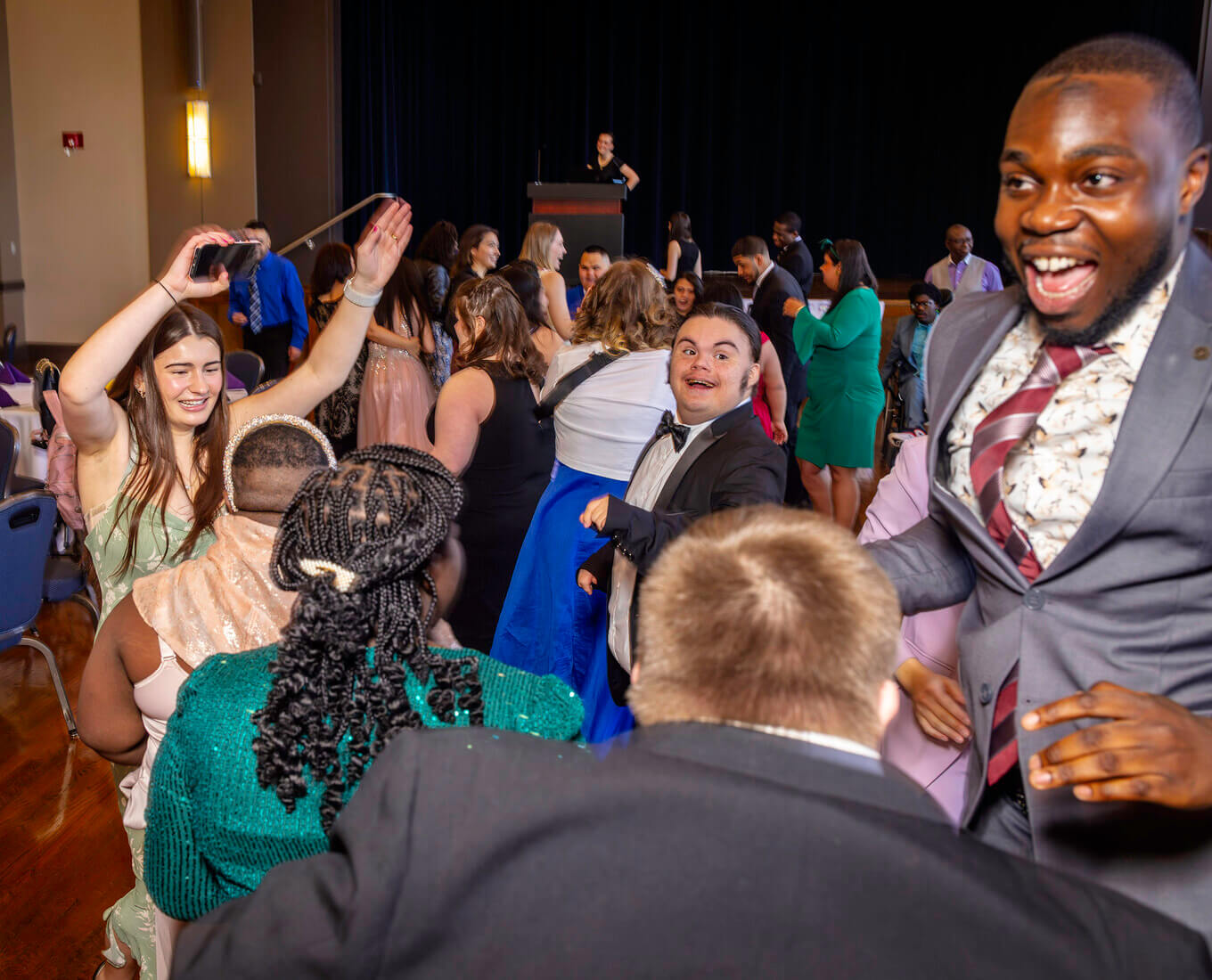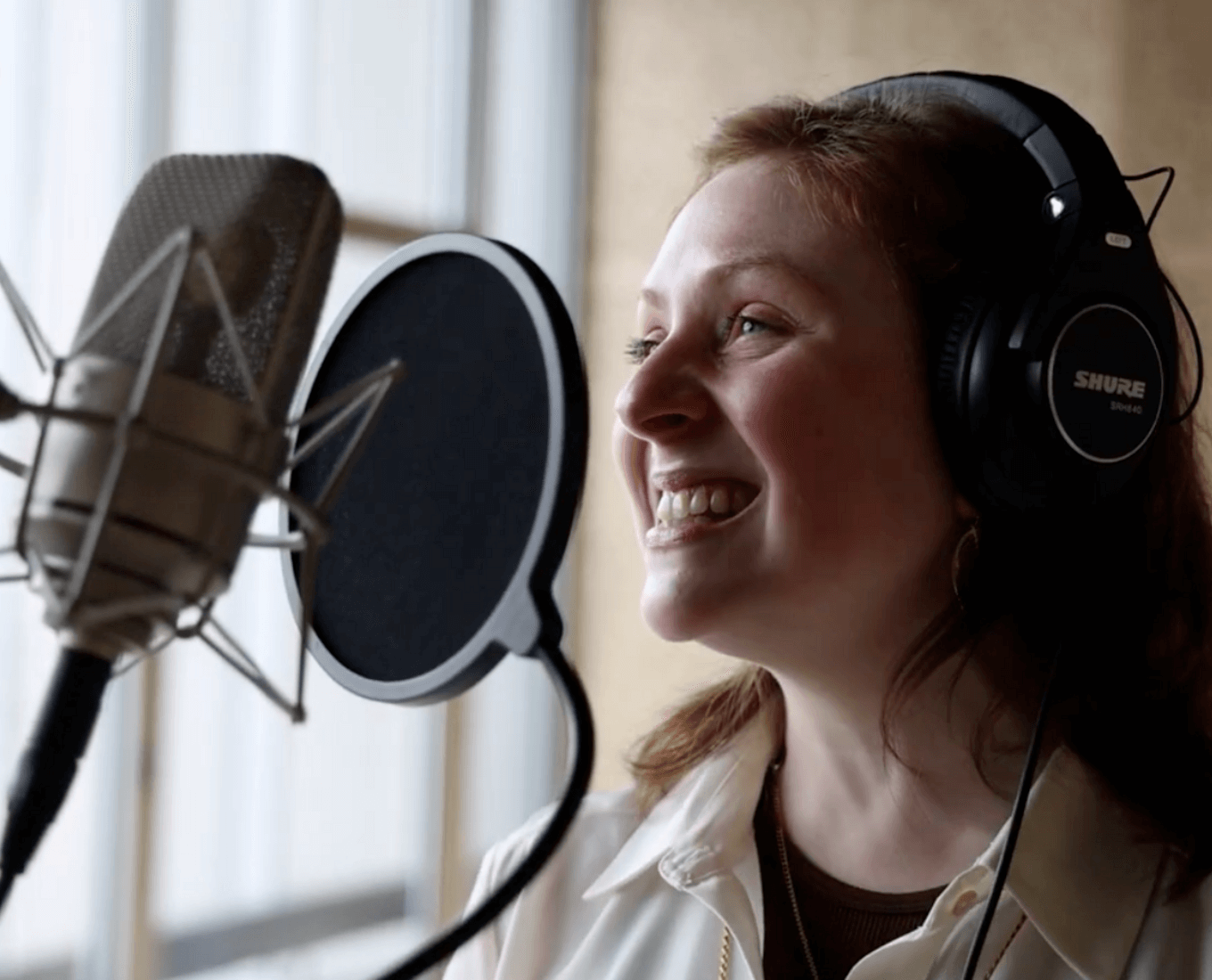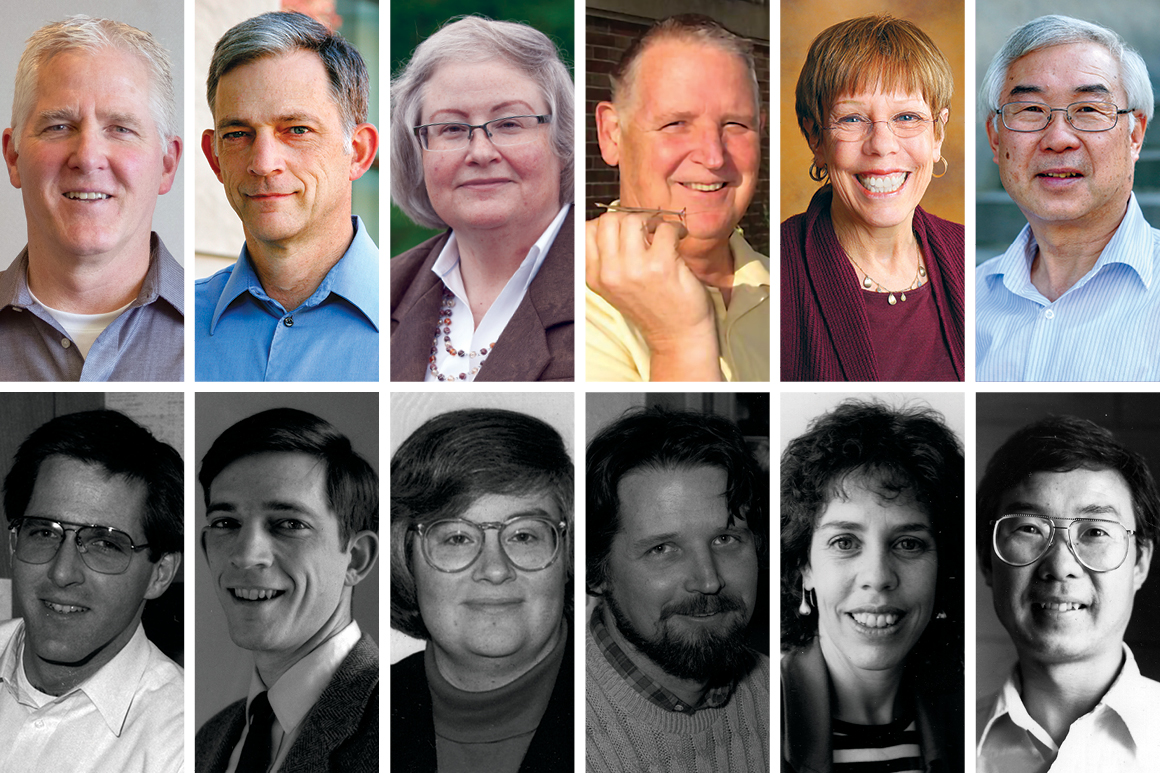
At the finish of the 2020-2021 academic year, Holy Cross saw six professors conclude their careers on Mount St. James, after decades of educating generations of Crusaders.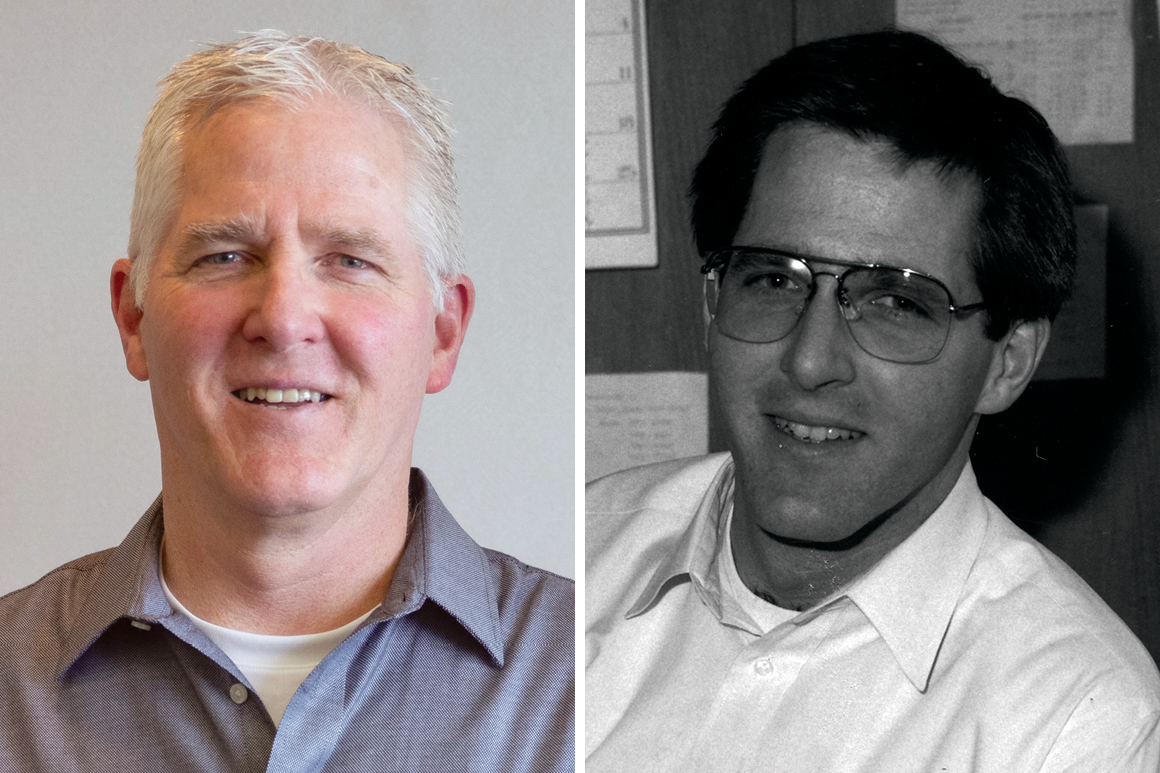 John Axelson, psychology
John Axelson, psychology
JOHN AXELSON joined the psychology department in 1982. Specializing in neuroendocrinology, hormones and behavior, neuroanatomy, and health and medicine, his research has been supported by several grants from a variety of sources, including the National Science Foundation (NSF). Axelson served as department chair, as well as director of the biological psychology concentration. Among his many roles at the College, he served on the Institutional Animal Care and Use Committee for two decades, and for 20 years provided leadership as the faculty athletics representative and the College's representative to the Patriot League Policy Committee.
What was your favorite class to teach?
I enjoyed preparing students planning to major in psychology when teaching Introduction to Psychology. With enrollments ranging from 40 to well over 100, it was a challenge to hold their attention, but I did my best. One of my main goals when teaching Physiological Psychology was to capture the interest of those students who felt they wouldn't enjoy studying the biological side of our discipline. I encouraged the students in my seminar Mind, Body Health and Medicine to consider the importance of taking an active role in their health and well-being. It has been gratifying to hear from students that are now working as health care professionals that the course helped shape their approach to caring for their patients. We're not supposed to have a favorite child or course, but in the last decade, teaching Food, Nutrition and Health has been a highpoint. It has been very rewarding to hear from former students that the course had a positive impact on their personal health, as well as the health of family members.
What was your proudest scholarly moment?
When I arrived at Holy Cross, the psychology department lacked equipment necessary to conduct basic neuroscience research. I recall carrying jugs filled with distilled water across campus from the biology department and cleaning lab equipment with a hose outside the basement of O'Kane, in the area that is now Memorial Plaza. With the help and support of others, including Ken Prestwich in biology, I was happy to obtain grants from the National Science Foundation, the Whitehall Foundation and the Veterans Administration that provided the equipment and resources for our students to conduct first-rate science. The publications I am most proud of were the studies conducted with colleagues at the Netherlands Institute for Brain Research in the late 1980s and early 1990s that identified steroid receptors localized within various neuropeptide neurons in the hypothalamus.
What will you miss about Holy Cross?
The best part of my day was always in the classroom. I will miss feeling my heart beat faster and my hands feeling a bit sweaty as I walked to class to meet the students on the first day of each semester. I will miss my friends and colleagues, and the many wonderful people who support the faculty and make our jobs easier.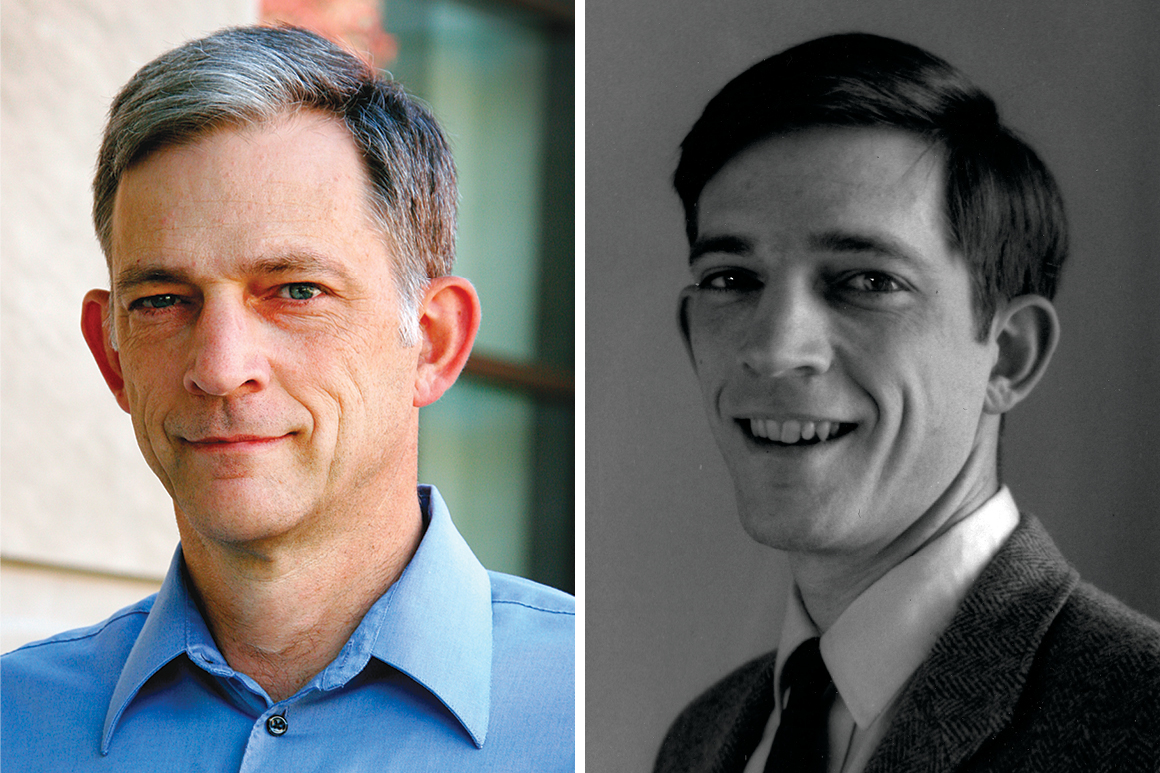 Richard Herrick, chemistry
Richard Herrick, chemistry
RICHARD HERRICK joined the chemistry department in 1984 and held the position of Edward A. O'Rorke Professor in the Liberal Arts from 2011-2014. A specialist in organometallic chemistry, his research has been published in numerous leading scientific journals and has been supported by grants from the NSF, the National Institutes of Health, Research Corporation, Pew Charitable Trust and other foundations. He was awarded the College's Mary Louise Marfuggi Award for Outstanding Scholarship in 2008 and was named the 2012 Distinguished Chemist by the New England Institute of Chemists. In addition to teaching, Herrick supervised the research efforts of more than 100 Holy Cross students. He has also created or co-created a number of guided inquiry experiments and educational resources, such as webpages, podcasts and ToolBook modules. His extensive record includes service as department chair and science coordinator, as well as on many College-wide committees, including the Committee on Tenure and Promotion, the Curriculum Committee and the Academic Standing Committee.
What was your favorite class to teach?
Deciding on my favorite course is similar to deciding who is your favorite child; on balance, though, I would say that Atoms and Molecules (CHEM 181) is my favorite course. There are several reasons for this. This course is the entry point for our guided inquiry program that we call the Discovery Program. I was a co-developer of the program, along with the other then-members of the department, and it gained much recognition at the time for the active learning aspects that we incorporated into it. Also, I had the privilege of being in charge of this course most of the years that it was offered, going back to its inception around 1990, giving me the opportunity to help the course evolve. Finally, and not least, I have always enjoyed interacting with students as they begin their college careers. They are so focused on learning the material that will eventually propel them to a career in science/medicine. It was a privilege to work with them at that stage and then to frequently interact with them a couple of years later in classes and in the research lab, and see how much they had matured and advanced.
What was your proudest scholarly moment?
My most memorable scholarly moment started late on a Sunday night 17 years ago. I sat down at the computer to check my email and had a request to review a manuscript for publication. I opened it up and was surprised to see my name in the abstract and throughout the article. A professor in Germany, whom I didn't know, had named a compound after me. It turned out that we (two other faculty members and five Holy Cross co-authors) had published a paper in 1996 on a new set of compounds we developed, which tested whether under certain geometric constraints amino acid movement was restricted by hydrogen bonding (it was). The geometry of that general class of iron compounds that modeled the hairpin turn of a protein Beta-sheet became much studied, which led to the name — the Herrick Conformation. That was a tremendous surprise and honor, but it couldn't have happened without the co-workers and the Holy Cross students who made the compounds and characterized them.
What will you miss about Holy Cross?
What I will miss most is the collegiality of the chemistry department at Holy Cross. The eight chemistry faculty members and the staff members present when I joined in 1984 acted as a wonderful, cohesive group whom I remember fondly. While they are all long-retired or moved on, the many people who have replaced them have been similarly wonderful to work with. I will always remember my co-workers and the institution of Holy Cross.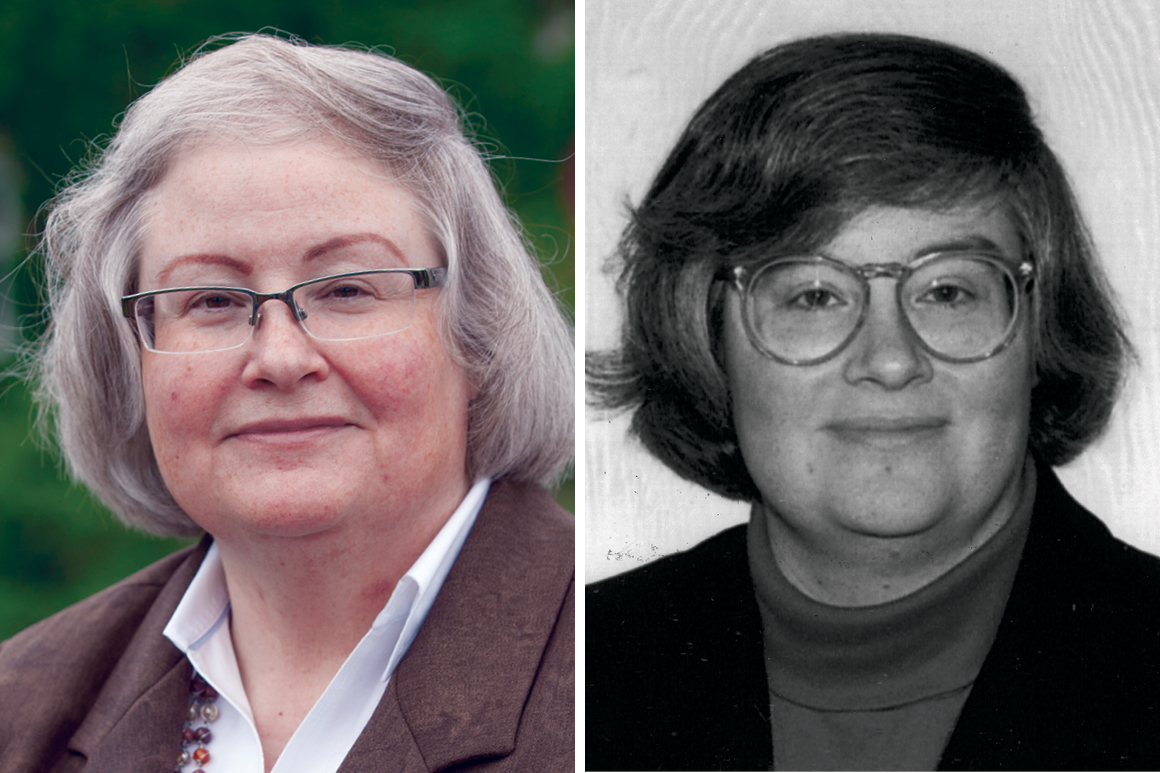 Joanne Pierce, religious studies
Joanne Pierce, religious studies
JOANNE PIERCE joined the Department of Religious Studies in 1992. A specialist in historical and sacramental/liturgical theology, she is the author of numerous articles and book chapters. She co-edited three volumes published by Liturgical Press, one of which, "A Commentary on the General Instruction of the Roman Missal," received two awards from the Catholic Press Association in 2008. In 2003, she received an Arthur J. O'Leary Faculty Recognition Award and in 2010, the Holy Cross "Newsmaker" Award. Pierce directed the Divine Cluster for Montserrat and has served on the Academic Governance Council, the Committee on Tenure and Promotion, the Finance and Planning Council, the Curriculum Committee and the Center for Interdisciplinary and Special Studies Committee. She was long involved with interdisciplinary programs in Catholic studies, medieval and Renaissance studies, and women's studies. She also served as presiding officer of the Catholic Academy of Liturgy and convener of its Issues in Medieval Liturgy Seminar.
What was your favorite class to teach?
My favorite class to teach was my seminar, Theology and Science Fiction. Many works of speculative fiction, whether set in the distant future or in an alternate history, explore fundamental questions of human existence in a "safe" setting. Topics included: What is sin? What is "God"? What is salvation? What does it mean to be "human"? What is death?
What was your proudest scholarly moment?
Probably my proudest scholarly moment was when a book that I co-edited with two others (Edward Foley and Nathan D. Mitchell), "A Commentary on the General Instruction of the Roman Missal" (Liturgical Press, 2007) won a 2008 Catholic Press Association Book Award (first place in the Liturgy category). All three of us had been contributors to the volume, as well as editors.
What will you miss about Holy Cross?
Years ago, before I started my doctoral studies, I spent a few years teaching junior high and high school. As a result, I have always had a particular interest in first-year students here at Holy Cross. As an advisor or instructor, I think I had a special appreciation of the difficulties new students faced in making the transition from high school standards to college-level expectations, and I hope I have helped to make the process a little less frustrating. Over the years, I participated several times in the former First-Year Program and the present Montserrat program, and have valued the opportunity to work with these smaller groups in a yearlong seminar sequence. Not only does this structure give first-year students the chance to explore the seminar topic in great detail, but it also offers them the time and opportunity to engage ideas in creative ways beyond the classroom. Even after more than two decades, I am still in touch with some of these students.
After spending more than half of my adult life at Holy Cross, I know that I will miss the people. I have always enjoyed interacting with students in the classroom or during office hours; teaching has been my life. But even more, I will miss the people I have worked with day-by-day and month-by-month over the past 29 years, both faculty and staff. There are too many to list, but I would like to note especially my colleagues in religious studies, some who have been friends for decades, and others who have joined the department later, at different times, over the years.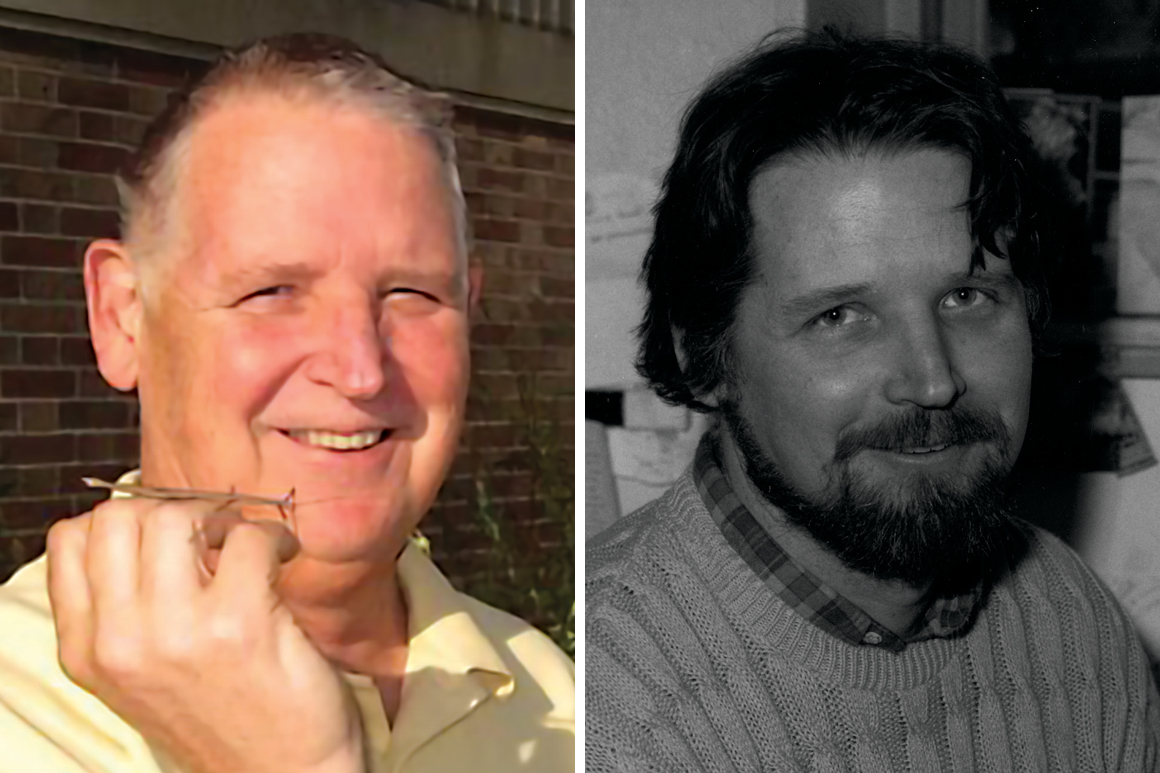 Kenneth N. Prestwich, biology
Kenneth N. Prestwich, biology
KENNETH N. PRESTWICH specialized in comparative physiology, animal behavior and conservation biology, and joined the biology department in 1984. His scholarly and teaching work was supported by grants from the NSF and the Howard Hughes Foundation. Much of this funding facilitated the introduction of computer technology into science labs and classrooms, and in developing alternative, interactive methods of instruction. He received the Holy Cross Distinguished Teaching Award and an Arthur J. O'Leary Faculty Recognition Award. He chaired the biology department for four years and facilitated a major curriculum revision and served on many College committees, including the Committee on Faculty Affairs, the Committee on Tenure and Promotion, and officially or as an adjunct to the Premedical Advising Committee for 15 years. The American Arachnological Society presented him with its Distinguished Service Award for creating the society's website and for making the society one of the first to make its journal widely available online. He also was honored for his work restoring and managing a demonstration ecosystem at the University of Florida.
What was your favorite class to teach?
I taught 18 different courses at all levels to diverse audiences and had no favorite. By the mid-1990s, I increasingly believed that the most important thing I could do was work to develop ways to teach biology that de-emphasized detail and instead centered on understanding common mechanisms and principles. Mastering these would, I hoped, illustrate the unity of science and give students tools they needed to rapidly learn the details of particular versions of biological processes. This required substantial reimagination of how I taught specific topics in all my courses. This led to the development of numerous handouts, exercises, problems and computer simulations that I also shared online and through professional societies. One major manifestation of this was an extensive website devoted to teaching applications of game theory toward understanding the evolution of animal behavior. I also enjoyed bringing a mathematical/biophysical perspective to biology students and in trying to personally model the usefulness of having a broad knowledge of biology. My students' appraisals regarding how they were able to learn (or not) from these approaches and their reports of how the courses served them after graduation were invaluable for what became my overarching career project.
What was your proudest scholarly moment?
I am proud of the recognition I received as a founder and expert in measuring the costs that animals incur (especially in terms of energy) when they produce acoustic and other signals. This included the mechanisms insects use to produce loud sounds and how all of this relates to mate choice (sexual selection) in animals. I was very pleased at the quality of the work of my research students on these projects and would note that all of them are pursuing successful careers in health professions, along with a few in academia. My scholarship meant the most to me when it also provided intellectual growth to these fine young people.
What will you miss about Holy Cross?
The students and staff: the talks in my office, labs and in the field with present and returning students; the camaraderie with members of the office, physical plant and food services staffs; and the chance to engage regularly with faculty friends in different departments and, of course, with members of my department. Thanks to everyone who was so kind to me!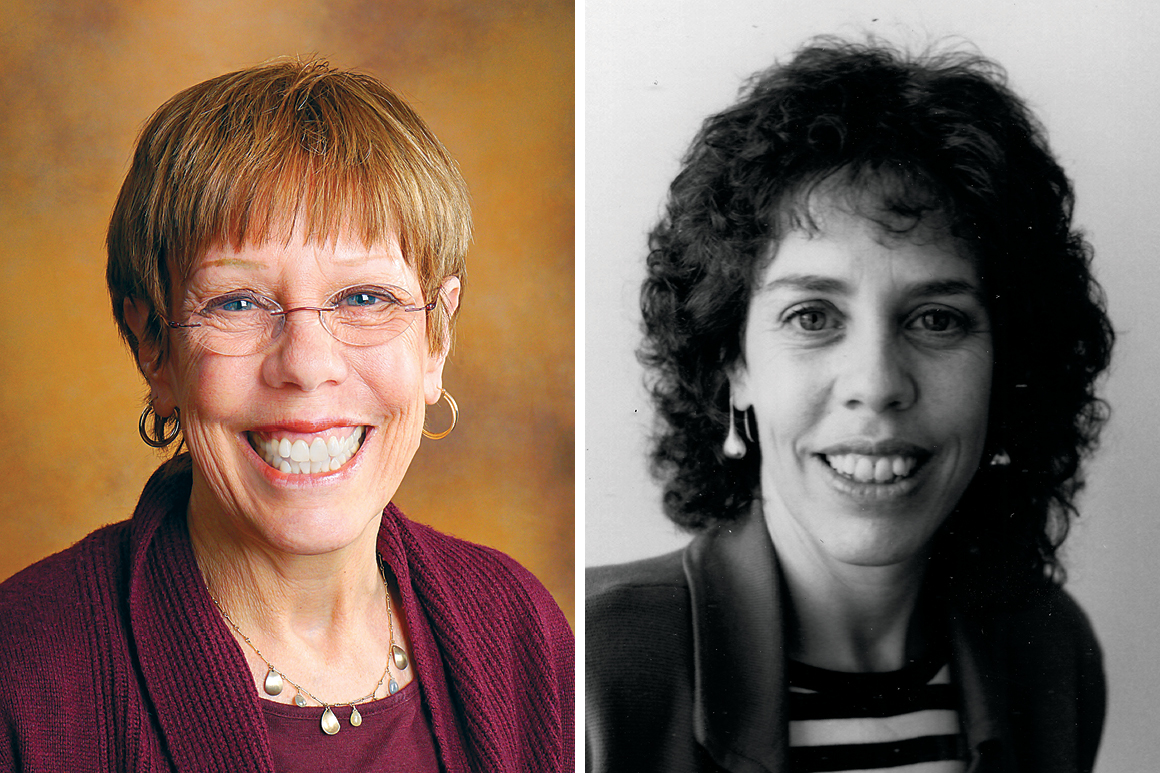 Claudia Ross, Chinese studies
Claudia Ross, Chinese studies
CLAUDIA ROSS joined the Holy Cross faculty in 1987 and essentially launched — and then shepherded — the development of what is today a vibrant Chinese program.
Widely recognized in her field for her expertise in linguistics and second language acquisition, Ross is the author of a prominent Chinese language textbook, "Modern Mandarin Chinese," as well as several other monographs and many scholarly journal articles. She is an eight-time recipient of the federal STARTALK grant to support teachers of critical foreign languages, through which she has hosted annual 10-day summer pedagogical development workshops for teachers of Chinese. She served as chair of the Department of World Languages, Literatures, and Cultures, and has been an active contributor to interdisciplinary programs, such as the Asian studies program. She has also served on many College committees, including the Committee on Study Abroad and the Curriculum Committee, and serves on the board of the New England Chinese Language Teachers Association. In 2018, she was awarded the College's Donal J. Burns '49 Career Teaching Medal.
What was your favorite class to teach?
I don't have a favorite; I have mostly taught language classes, and I love working with students as they proceed on their journey to communicate in a language and culture other than their own. I think my favorite classes are the ones where students have field-tested my co-authored Chinese language textbooks. Students in these classes always provide feedback and suggestions, so the classes feel like a partnership.
What was your proudest scholarly moment?
The completion of my co-authored Chinese reference grammar, "Modern Mandarin Chinese," which I wrote with one of my former Chinese teachers. I learned so much while writing the book, and I continue to get feedback (and suggestions) from strangers who are using the book to support their Chinese language learning.
What will you miss about Holy Cross?
That's easy: my wonderful colleagues and students, and the feeling of community that the College nurtures.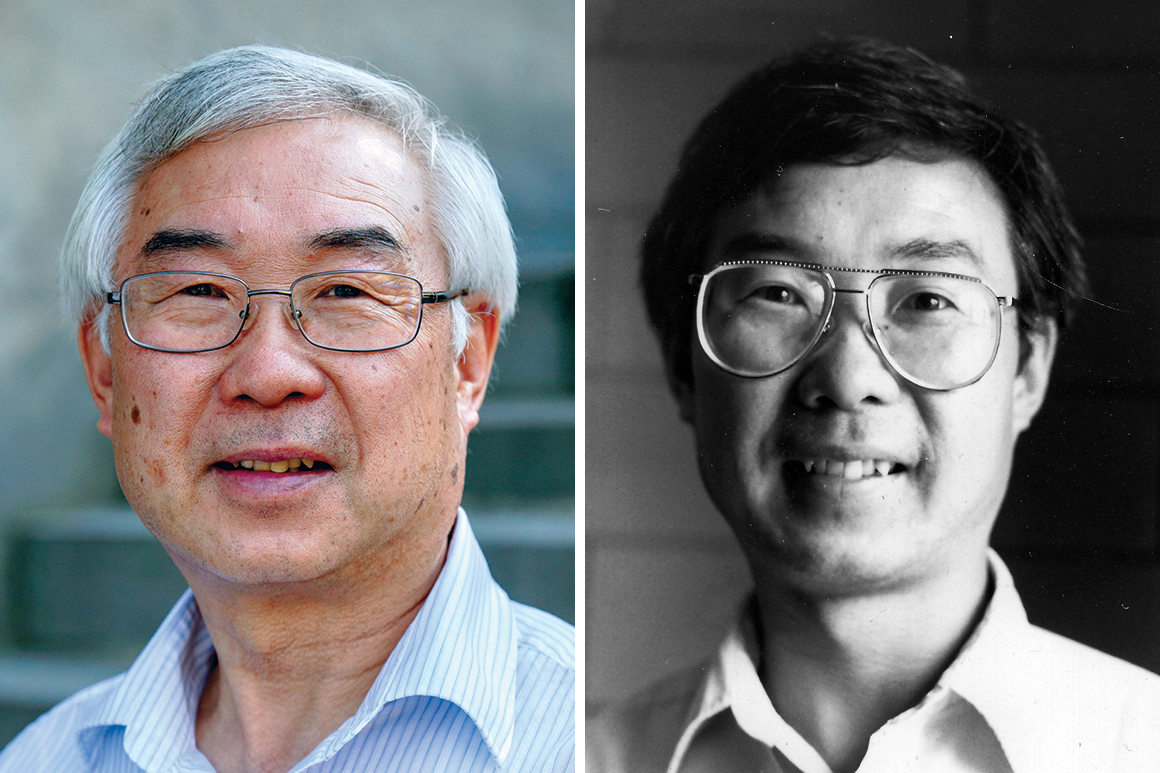 De-Ping Yang, physics
De-Ping Yang, physics
DE-PING YANG joined the physics department in 1994. Specializing in experimental condensed matter physics using spectroscopic methods, he is co-author of the monograph, "Mössbauer Effect in Lattice Dynamics," and has published many chapters and journal articles. His research has been supported by a Cottrell College Science Award from Research Corporation and by the U.S. Department of Defense through the Raytheon Corporation. He is an avid supervisor of student research, and in his lab many Holy Cross students have had the opportunity to work with a Mössbauer spectrometer, a rare opportunity for undergraduates. Yang was a regular participant in the Faculty Mentor Program and served as department chair, as well as on a variety of College committees, including the Committee on Tenure and Promotion, the Committee on Faculty Affairs and the Student Life Council. He has also been a member of the Executive Committee of the New England Section of the American Physical Society.
What was your favorite class to teach?
My favorite course to teach is the six-hour-a-week combination of Electronics Theory and Electronics Laboratory. It is designed for upper-level physics majors to understand how to orchestrate electrons to perform various tasks at one's command, and how to build functional circuits to make that happen. This course has been quite popular because students are highly interested in knowing the inner workings of electronic devices, since everyone has been using these devices so extensively.
The classes are taught in one of the labs in Haberlin, with state-of-the-art instruments (such as oscilloscopes, digital multimeters, semiconductor sensors, microcontrollers, etc.), and students work in groups of two to build electronic circuits from scratch. Many of the circuits produce fun results with light, sound, vibrations and logic decisions, which you might say is the beginnings of A.I. — artificial intelligence. We allow students to make their own mistakes, with occasional awful smell/smoke coming out of overheated circuits, and to find ways to fix the problems. And since the science of electronics changed and advanced so rapidly, I enjoyed updating the course materials every time I taught it, and students enjoyed doing cool experiments. At the end of the semester, all students design a final project of their own choosing and implement it with a functional sophisticated circuit, to my satisfaction as well as to their own delight.
I think this course not only makes the students gain valuable hands-on and teamwork experience, but also promotes their critical and creative thinking. All in all, I like this course because it is theoretically rigorous, it is highly practical and it is naturally engaging.
What was your proudest scholarly moment?
That would be a book, "Mössbauer Effect in Lattice Dynamics," published by Wiley, a well-known publisher of scientific research and educational materials. This book contains a comprehensive review of the theory and experimental techniques of using Mössbauer spectroscopy to study magnetic materials for electronic devices, scientific and medical instruments, etc.
What will you miss about Holy Cross?
I will miss seeing the students, especially those who come to my office hours for one-on-one lively discussions about solving physics problems, about challenges in pursuing a science major and about anything in college life. I will especially miss talking with students who had a less-than-adequate high school preparation in math and science, and encouraging them to make use of all available resources to help them catch up and excel in a STEM field.
Written for the Summer 2021 issue of Holy Cross Magazine.
About Holy Cross Magazine
Holy Cross Magazine (HCM) is the quarterly alumni publication of the College of the Holy Cross. The award-winning publication is mailed to alumni and friends of the College and includes intriguing profiles, make-you-think features, alumni news, exclusive photos and more. Visit magazine.holycross.edu/about to contact HCM, submit alumni class notes, milestones, or letters to the editor.
Holy Cross Says Farewell to Six Retiring Professors
The cohort leaves a long legacy, teaching on Mount St. James for a combined 203 years
Read Time
16 Minutes

